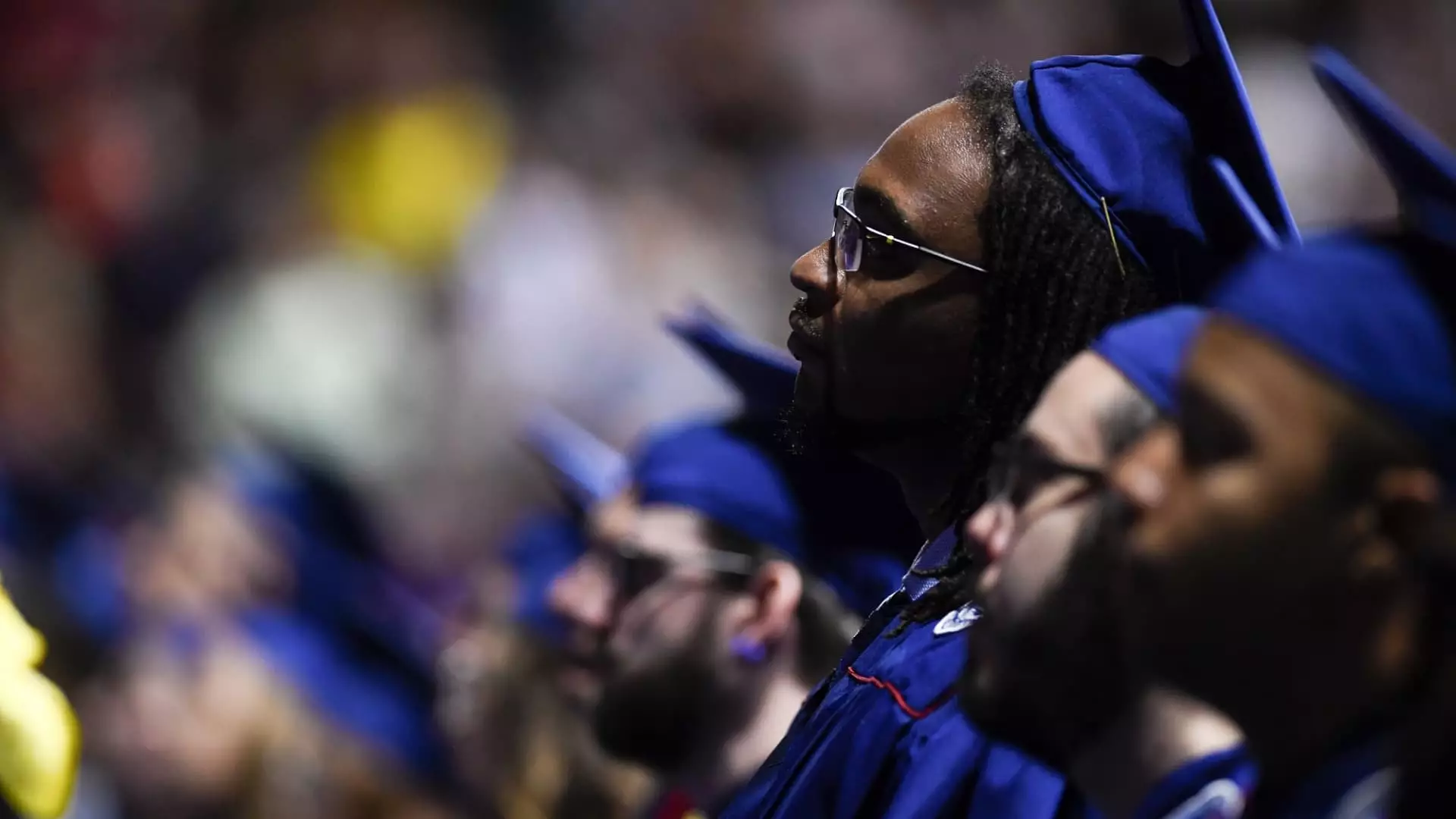As graduation ceremonies conclude with tossing caps and heartfelt speeches, it becomes a moment not just of celebration, but reflection on the paths taken to reach these milestones. This year, however, the atmosphere is thick with anxiety. A steady stream of disheartening economic reports has muddied the waters of the job market, and the once-coveted STEM degrees are revealing cracks in their supposed fortitude—challenged by unexpected contenders. Surprising data from the Federal Reserve Bank of New York has illuminated a startling narrative: humanities majors, far from being relegated to the sidelines of the labor market, are flourishing. The unassuming art history and philosophy graduates are securing jobs at rates that would make even the most ambitious STEM students rethink their strategies.
With revered fields like computer science and engineering touting unemployment rates hovering around 6% and higher, it demonstrates a dissonance in the traditional belief that these fields offer unshakeable job security. It’s time to rip the veil from this assumed truth. Employers are increasingly turning to liberal arts graduates who bring creativity and critical thinking—qualities that are invaluable, especially as industries pivot under the pressure of advancing technologies and shifting workforce needs.
Humanities: The Unexpected Path to Employment
The irony lies in the statistics themselves. While STEM fields promised a lucrative career pathway, graduates in nutrition (with mere 0.4% unemployment) and art history (3% unemployment) are rewriting the script. What’s fascinating is how traditional career beliefs are being upended. The demand for graduates with backgrounds in history and philosophy is on the rise, largely thanks to an unforeseen societal shift triggered by technological disruptions. Companies like BlackRock are openly valuing the insight and cultural literacy that humanities majors provide, essential in navigating the complex market dynamics of today.
Such revelations hold weight, as they challenge the prevailing narrative that a business or technology degree is the sole pathway to upper-tier employment. There’s a growing recognition of the value that a holistic education brings—an education that promotes adaptability and innovative thinking alongside technical skills.
The Real Skills for Real Problems
In an age marked by rapid advancements in artificial intelligence and automation, the call for soft skills has never been more pronounced. The market now requires nuanced approaches to problem-solving and communication, underscoring the unique capabilities of liberal arts majors. These graduates offer perspectives that are often overlooked in data-driven departments, focusing on human-centric solutions, an increasingly precious commodity amidst an algorithmic society.
Take, for instance, the healthcare sector—another glowing example of where job security lies. Nursing, despite offering lower starting wages compared to finance, has outperformed many sectors with a meager 1.4% unemployment rate. It serves as a poignant reminder that in volatile economic climates, the sheer necessity of certain professions can outweigh immediate financial gain.
A Shift in Perspective for Future Graduates
As the ongoing economic landscape poses challenges for job seekers, prospective college students would do well to reassess their priorities. While engaging in the latest tech trends remains critical, an appreciated understanding of human experience, cultural narratives, and creative problem-solving is equally essential. The reality is far grimmer for those hinged solely on achieving the highest median salaries upon graduation. When faced with economic pressures, their perceived safety nets can unravel swiftly.
In essence, the era of the one-dimensional career path is behind us. The diversification of skills is paramount. The shifting tides in job markets indicate that students and regulators need to encourage a balanced approach to education—where STEM and humanities work hand in hand instead of one overshadowing the other.
Such an approach thrives on the idea that education should not solely prepare individuals for specific careers but cultivate adaptable thinkers capable of thriving in any challenge, emphasizing the liberating value of a well-rounded education. In a world marked by uncertainty, nurturing both the analytical and the creative stands to be the true key to future success.

